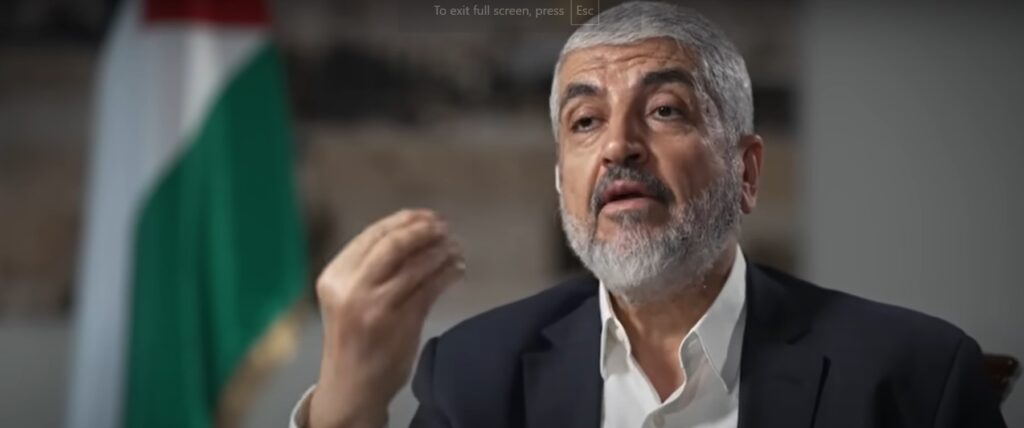The assassination of Haniyeh by Israel has left a significant vacuum in Hamas’s leadership.
The organization is now preparing to appoint a temporary leader until internal elections can be held, likely after the end of the ongoing conflict in the Gaza Strip.
According to sources within Hamas, three main candidates are in contention to succeed Haniyeh.
They are Khaled Mashal, head of Hamas abroad; Yahya Sinwar, leader of Hamas in the Gaza Strip; and Zaher Aljabarin, head of the military wing of Hamas in Judea and Samaria and the organization’s “economic brain.”
All three are members of Hamas’s political bureau.
Khaled Mashal, born in Silwad near Ramallah in 1956, joined the Muslim Brotherhood in 1971 and played a role in the founding of Hamas.
He was elected head of Hamas’s political bureau in 1996 and served until 2017, when Ismail Haniyeh succeeded him.
Mashal survived an assassination attempt by the Israeli Mossad in Jordan in 1996.
He has extensive regional and international experience and was elected head of Hamas abroad in 2021.
Yahya Sinwar, born in the Khan Yunis refugee camp in 1962, was elected leader of Hamas in the Gaza Strip and head of its military wing in 2017, and again in 2021.
He served as head of Hamas’s security apparatus, “Majd,” during the first intifada, which aimed to expose collaborators with Israel.
Sinwar controls Hamas’s military wing in Gaza and was a key planner of the October 7 attack on Israeli settlements along the Gaza border.
Zaher Aljabarin, born in 1968 in Salfit, Samaria, was one of the founders of Hamas’s military wing in Judea and Samaria.
He was released in 2011 as part of the Shalit deal and currently serves as head of the military wing in that region.
Within Hamas, the prevailing opinion is that Khaled Mashal will be chosen as Haniyeh’s temporary successor due to his previous experience and the challenging situation in Gaza, which has caused widespread anger towards Yahya Sinwar following the October 7 events.
Zaher Aljabarin, having recently inherited Saleh al-Arouri’s position after his assassination by Israel, is seen as lacking the necessary political experience.
Iran opposes the election of Khaled Mashal as the temporary successor and is expected to attempt to thwart his appointment.
Mashal opposes the military and political alliance between Hamas and Shiite Iran, favoring stronger ties with the Sunni “Muslim Brotherhood” axis led by Qatar, Turkey, and Pakistan.
Should Israel succeed in eliminating Yahya Sinwar in Gaza, Mashal’s chances of securing the position could increase.
Ultimately, it will be up to the Shura Council of Hamas to decide on Haniyeh’s temporary successor until internal elections are held.
Some members of the Shura Council have been killed in the conflict, while others are hiding in tunnels in Gaza.
Hamas must establish a mechanism to choose Haniyeh’s successor.
For now, it seems likely that Khaled Mashal will be selected. According to Hamas officials, Mashal, who has been in conflict with Sinwar and other military leaders in Gaza since the 2014 war, will strive to maintain the organization’s decision-making center abroad and reduce Sinwar’s influence.




